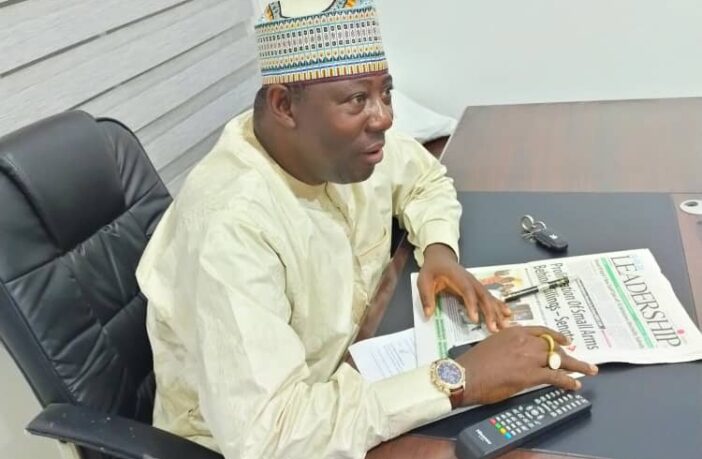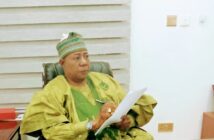Throughout the history of humanity, agriculture has always played pivotal role in social and economic development. Firstly, robust agriculture engagement ensures food security, which is the fundamemtal and best form of security because a nation that cannot feed its population is vulnerable, and in fact seating on a time bomb.
That is why developed countries like the United States of America, China, Russian, Israel and Britain prioritise agriculture. They go along way to pump subsidy into the sector for their farmers. It stands true that agricultural economy revolution laid the foundation of their development. Huge investment in the agric sector brought them to where they are today.
When President Muhammadu Buhari came to power in 2015, the first appeal he made was for Nigerians to return to land, for there in lays true prosperity. However, you cannot appeal to people to go back to farming without making the environmemt conducive to them to do so. The president’s anger was specifically vented at the huge import bill of rice, which Nigeria has the weather and vegetation to grow.
It has been manifestly clear from the beginning in 2015 – when Buhari was seeking the position of the president of the country – that agriculture was going to be the major thrust of his administration. It is not surprising to see the president living up to that promise.
Through the ministry of Agriculture Development and the Central Bank of Nigeria (CBN), the government set out a regime of incentives to make farming more attractive once again as it was in the 60s when Nigeria had groundnuts pyramid in the North, cocoa in the West and palm oil in tyr East. Then Nigeria had enough to feed its population and excess for export.
As part of its grand policy to revamp the agric sector, the Buhari-led government came up with the Anchor Borrowers’ Programme initiative under the CBN. The programme was concieved to catalyse the agricultural productive base of the nation, which is a major part of our economic plan to uplift the economy, create jobs, reduce reliance on imported food and industrial raw materials, and conserve foreign exchange.
Recently, Nigerians came face to face with the benefits of Buhari’s huge investments in agriculture when the president unveiled 13 rice pyramids or 13 million bags of rice at the event attended by some state governors and business operators. With both dry and raining seasons’ farming, fertilizer and also technologies in agriculture research and development, Nigeria witnessed the unveiling of rice pyramid again.
Now, countries like Thailand are crying foul that President Buhari’s magic wand has dropped a bumper of achievements in the agric sector, which has thrown many of their youths into the labour market because Nigeria no longer depends on importation of rice from Thailand and other countries to meet its rice needs. As recently confirmed by CBN governor, Godwin Emefiele, national output of rice has moved from about 5.4 million metric tonnes in 2015 to over 9million metric tonnes in 2021.
Seven years under Buhari has also seen greater synergy between government and stakeholders like the different farmers’ group that has sprung up in the country. The effective collaboration has significantly improved the productivity per hectare of the smallholder farmer from about 2.4 metric tons per hectare in 2015 to between 5 metric tonnes per hectare in 2021.
Also, there has been a lot of improvement in livestock production. Recent estimates indicate that Nigeria’s national herd comprises 18.4 million cattle, 43.4 million sheep, 76 million goats and 180 million poultry1 (FMARD, 2017). The majority of animals are raised in extensive production systems comprising smallholders and nomadic herders. In the third quarter of 2021, the contribution of livestock production to Nigeria’s GDP experienced an increase by 0.12 percent compared to the same period of the previous year.
On wheat cultivation, Nigerians has the best road map under this administration. The CBN has intervened to bail farmers out of the challenge of inadequate seeds, adjudged as the most critical input retarding wheat production in the country.
For President Buhari, the commissioning of rice pyramids is an indication that Nigeria is making steady and assured progress towards self-sufficiency in food production. The federal government under Buhari is pursuing an agenda of Nigerians consuming what is produced locally to discourage importation, reduce pressure on the naira and grow the economy. Though the idea is seen as protectionism by some foreign economists, it has reduced Nigeria’s food import bill.
The expectation from the emerging commercial farming in Nigeria is to drive down the price of food at the local market and discourage demand for foreign food. The Buhari administration is supporting local production to benefit from the African Continental Free Trade Area (AfCFTA).
As of the end of December 2021, the CBN had financed 4,489,786 farmers that cultivated 5,300,411 hectares across 21 commodities through 23 participating financial institutions in the 36 states of the federation and the FCT.
The Buhari government is about food security. National security now means food security and food security means national security. Though the job is not done, he vowed relentless commitment until Nigeri has enough to feed itself and export.
All these landmark achievements were possible because of deliberate steps taken by Buhari, including the establishment of a National Food Security Council to address challenges in the country’s agriculture sector. Before the Buhari era, food security was a huge problem in Nigeria. It ranks 84th out of 119 countries on the 2017 Global Hunger Index, coming in just below the Republic of Congo.
If a person is food secure it typically means that sufficient quality food is available, they have enough resources to buy food for a nutritious diet and they have stable access to adequate food at all times. That is one of the legacies President Buhari is leaving behind for Nigerians and in no distant future those who don’t see any good in the present administration, including the opposition and their shrill voices will have no choice than to admit that no government has shown the political will to wriggle Nigeria out of poverty like the Buhari administration.
– Ibrahim is director, Communications and Strategic Planning, of the Presidential Support Committee (PSC).



